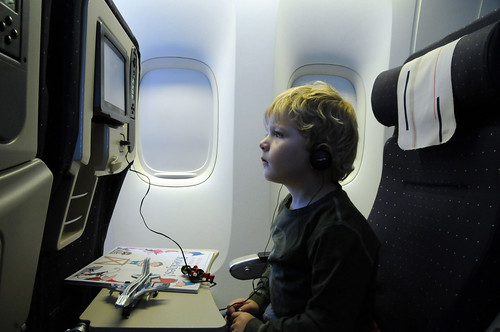
Sam sat down to complete his report. “Stinking weekly reports … I’m great with my customers. This is such a waste of time.”
“Ding.”
Sam’s iPhone pierced his thoughts whispering the seductive suggestion: “Something big is in the works; you’ve got mail.” With the speed of a barehanded housefly catcher, Sam grabbed his phone. “I hope Marlene is confirming they’re ready to go on my proposal. What a great way to end the week.”
While his inbox did not contain Marlene’s message he did discover 20 new emails. Eleven minutes later he returned to his spreadsheet.
“You busy?” Mark said as came in and sat down.
“No, what’s going on?” Sam eagerly responded.
After ten minutes of small talk, Mark stood up to leave, “Hey, I’ve got to go. Heading out of town for the weekend and I want to beat the traffic. Could we talk about this Monday?”
“Well sure,” Sam stuttered. Alone again, he tried to re-focus, “Now, what was I was working on? Oh yeah, my weekly report.”After about 5 minutes of focused effort his communications device produced the delightful “Tri-color” tone. Immediately his mind processed the moment, “Only key people send text messages … this must be important.” And like the gun slinging Marshall Dillion on Gunsmoke, Sam whipped out his iPhone from its holster.
“What time does the Thunder game start Saturday night?” his buddy Dave asked.
“7 … can’t wait … C U there!”
Just to be sure, Sam pulled up the team website.
Ten minutes later, Sam circled back to his weekly report. That’s when he noticed the time… 6:45 pm, on a Friday night! The office was empty except for the cleaning crew.
Frustrated, he started another email message: “Mary, my report will be on your desk first thing Monday, I’ve been very busy this week….”
Overload or Overconsumption?
Distractions. There’s no shortage of things that make it difficult to think or pay attention. Web “research” that postpones making that decision. Email that sucks prime time out of your day to think and reflect … to set your course. A shot of social media the perfect diversion and just add chocolate or coffee or both when stressed.
Some say we live in an age of information overload. Recently, I heard Darren Hardy provide another perspective:
Obesity is not food overload it’s food overconsumption.
Distractions are not about ‘Information Overload’ its information overconsumption. The more overwhelmed we make ourselves, the more likely we are to get distracted, and we are doing it to ourselves.
Can you pay partial attention?
When you pay attention you engage the power of carefully thinking about, listening to, or watching someone or something. You focus on one thing while ignoring other tasks or activities. You might say paying attention sharpens focus by restricting peripheral vision.
The nagging question of our hyper-connected world is, “What am I missing?” This fear of “missing out on something” undermines productivity.
Linda Stone, a former Apple and Microsoft researcher, calls this “continuous partial attention.” She writes,
…we want to connect and be connected. We want to effectively scan for opportunity and optimize for the best opportunities, activities, and contacts, in any given moment. To be busy, to be connected, is to be alive, to be recognized, and to matter.
We pay continuous partial attention in an effort not to miss anything. It is an always-on, anywhere, anytime, any place behavior that involves an artificial sense of constant crisis. We are always on high alert when we pay continuous partial attention.
Perhaps there are moments when this behavior works. But it has become the norm for many. We pay a price for being always accessible. In large doses, continuous partial attention…
… contributes to a stressful lifestyle, to operating in crisis management mode, and to a compromised ability to reflect, to make decisions, and to think creatively. In a 24/7, always on world, continuous partial attention used as our dominant attention mode contributes to a feeling of overwhelm, over-stimulation, and to a sense of being unfulfilled. We are so accessible, we’re inaccessible. The latest, greatest powerful technologies have contributed to our feeling increasingly powerless.
Productivity requires focused attention. It is an intentional selection of one thing over many, supported by undivided concentration and effort.
Undivided attention
Monday morning, Sam arrived at the office a few minutes early. Instead of checking email, he opened his weekly report. When his phone rang, he let it go to voice mail. Fifteen minutes later he sent his report to Mary.
Over the weekend, he took inventory of his projects and identified Monday’s big rocks. “If I complete these, I’ll have a very productive day,” he thought.
At 9:30 a.m. a meeting reminder popped up: “Airplane Time.” He remembered how much work he got done on his last trip because he was disconnected.
Sam’s commitment to disconnect for 45 minutes paid off as he focused his attention on his first big rock. The progress energized him, “I can’t believe how much work I got done.”
What if you scheduled “airplane time” on your schedule, how might it keep your productivity from sinking?
Here’s to your freedom,
Steve
Photo credit: Frans Persoon via Compfight

Leave a Reply